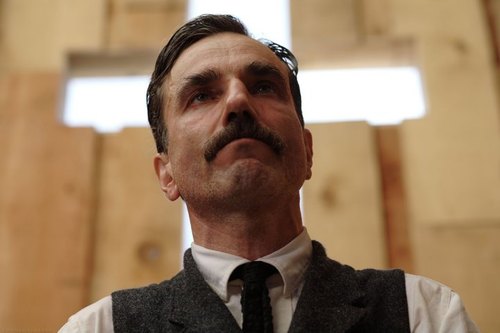“There’s a whole ocean of oil under our feet! No one can get at it except for me.” Daniel Plainview
Acclaimed actor Daniel Day-Lewis won an Academy Award for his turn as oil barren Daniel Plainview in the period drama There Will Be Blood. Plainview relentlessly pursued domination against his competition in the oil business by almost any means necessary. Plainview employed every tactic from emotional manipulation to outright bullying to achieve his goals. In the film’s final scene, Plainview humiliates a faltering preacher, Eli Sunday, who had earlier hindered the sale of a tract of land Plainview wanted for his business empire. Sunday, desperate for money, offered Plainview the oil-rich land he had previously prevented him from obtaining. Dashing Sunday’s last hope, Plainview informed him that he had already drained the oil from under the tract, effectively “drinking Eli’s milkshake.” Many a real-life pastor may be able to sympathize with the plight of Eli Sunday as they watch their church attendance dwindle, their offering streams dry up, and their buildings slowly empty as older members die and are not replaced. Such pastors are being approached by a sort of baron whose dramatic chops rival those of Daniel Day-Lewis. That opportunistic baron, a major player in the church business, is megachurch pastor Johnny Hunt of First Baptist Church of Woodstock. Hunt’s church already has four campuses across two states. In a video published by the North American Mission Board, Hunt offers faltering churches a chance at “revitalization,” all he asks for in return is the deed to the church’s valuable real estate.
Hunt is one of the most engaging preachers in America. He is also one of the most trusted and influential men in Southern Baptist Circles. Hunt nominated current SBC president Steve Gaines, he nominated two former SBC presidents, and served in the office himself. Hunt bestrides the narrow SBC world, especially the North American Mission Board, like a colossus. One of his most notable interests is what he calls “church revitalization.” In the video embedded below, Hunt plays the heart strings of small, struggling churches. Reminding them that the “legacy” of their faltering congregations is in danger of being lost, Hunt offers them an opportunity for their churches to live on through his plan. Hunt and his church (and even NAMB) will attempt to draw new attenders to declining churches by sending fresh leadership and implementing exciting worship styles. In exchange for this help, churches are expected to turn over the deeds of their property to the assisting organization (First Baptist Woodstock or NAMB as the case may be).
Hunt and NAMB are essentially building a real estate empire by offering to assist desperate people in desperate situations. Many declining churches are sitting on hundreds of thousands of dollars of real estate. Hunt’s scheme is essentially a reverse mortgage for churches. Like reverse mortgages, Hunt’s revitalization scheme targets older, often emotional people who are running out of options and support. Hunt and his wealthy church, when the dust settles, are left with valuable property no matter the result of the revitalization scheme. Because of his church’s great wealth and his established reputation, he is in the unique position to offer this kind of help. When a New Testament church and a baptist denominational entity become multi-site real estate empires, the very eccelsiology of Baptists is itself violated and endangered. No matter how profitable this may be for franchise megachurches, there is no justification for this action. That is is undertaken through emotional manipulation and the leveraging of advantageous wealth, is simply tragic.
*Please note that the preceding is my personal opinion. It is not necessarily the opinion of any entity by which I am employed, any church at which I am a member, any church which I attend, or the educational institution at which I am enrolled. Any copyrighted material displayed or referenced is done under the doctrine of fair use.











